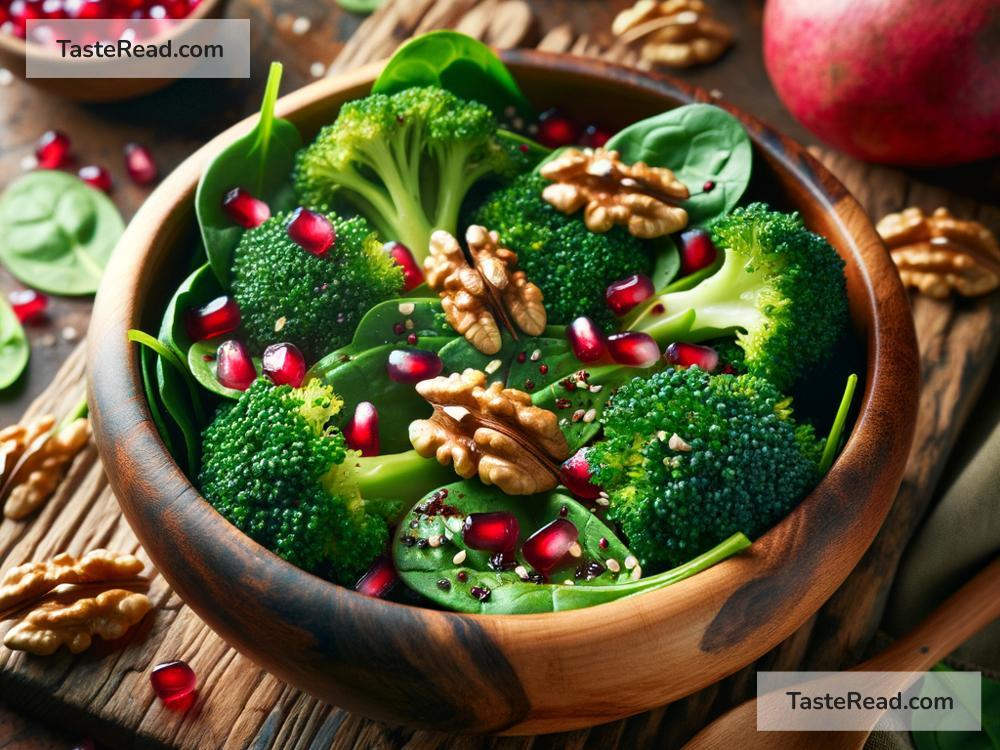Foods That Strengthen Alveoli: Supporting Your Lungs with Nutrition
Our lungs are incredible organs that allow us to breathe and stay alive. Deep inside the lungs are tiny air sacs called alveoli. These small structures play a big role in absorbing oxygen and releasing carbon dioxide during respiration. Keeping your alveoli healthy is essential for overall lung health, especially if you live in polluted environments, have asthma, or simply want to prevent respiratory issues as you age.
Did you know that the food you eat can help your alveoli stay strong? That’s right! Certain foods promote lung health, reduce inflammation, and protect alveoli from damage. In this blog, we’ll explore simple, everyday foods that you can add to your diet to boost lung function and keep your alveoli happy.
1. Leafy Greens: Spinach, Kale, and Swiss Chard
Leafy greens are packed with vitamins and antioxidants that help protect the lungs. They are rich in vitamin C and carotenoids, which fight free radicals that can damage alveoli. Leafy greens also contain magnesium, an essential mineral that helps relax lung muscles and improve airflow.
How to eat them:
– Add spinach or kale to smoothies.
– Toss Swiss chard into stir-fries or soups.
– Try a fresh green salad with olive oil and lemon juice for added benefits.
2. Fruits Rich in Vitamin C: Oranges, Strawberries, and Kiwi
Vitamin C is a superstar when it comes to maintaining healthy lungs. It boosts your immune system and reduces inflammation in the alveoli. Fruits like oranges, strawberries, and kiwi are not only delicious but also great for improving oxygen uptake in the body.
How to eat them:
– Snack on fresh fruit throughout the day.
– Blend strawberries and kiwi into a refreshing fruit salad.
– Drink orange juice or add slices of orange to your water for flavor.
3. Omega-3 Fatty Acids: Salmon, Walnuts, Chia Seeds
Omega-3 fatty acids are anti-inflammatory and can help protect alveoli from irritation caused by pollution, allergens, or respiratory infections. Foods like salmon, walnuts, and chia seeds are great sources of omega-3s and can promote healthy lung tissues.
How to eat them:
– Grill or bake salmon for dinner.
– Add walnuts to oatmeal or salads.
– Sprinkle chia seeds onto yogurt or blend them into smoothies.
4. Garlic: A Natural Anti-Inflammatory
Garlic is well-known for its health benefits, especially its anti-inflammatory and antioxidant properties. It contains compounds like allicin, which can help reduce inflammation in the lungs and improve circulation. This helps ensure oxygen reaches the alveoli efficiently.
How to eat it:
– Use garlic as a seasoning in soups, pastas, or roasted vegetables.
– Make a garlic spread by blending fresh garlic with olive oil.
– Add minced garlic to salad dressings for a zesty flavor.
5. Turmeric: A Golden Anti-Inflammatory Spice
Turmeric is a powerful spice that contains curcumin, a compound known for its anti-inflammatory effects. Curcumin may help reduce swelling in the alveoli and protect lung cells from oxidative stress. Turmeric also supports overall respiratory health by keeping the airways clear.
How to eat it:
– Sprinkle turmeric into curries, soups, or rice dishes.
– Stir turmeric into warm milk or tea for a soothing drink.
– Add it to roasted veggies or scrambled eggs for a golden touch.
6. Apples: Your Lung-Boosting Snack
Apples are rich in antioxidants and fiber, especially quercetin, a compound that reduces inflammation in the lungs and strengthens the alveoli. Several studies have linked regular apple consumption to better lung function.
How to eat them:
– Slice apples as a quick snack.
– Pair them with peanut butter for a tasty treat.
– Add diced apples to oatmeal, salads, or muffins.
7. Beans and Lentils: High in Iron
Iron is vital for oxygen transport in the body. Beans and lentils are excellent sources of plant-based iron, helping your body supply oxygen to the alveoli efficiently. They also contain protein and fiber, which contribute to overall health.
How to eat them:
– Make lentil soup or chili.
– Use beans in tacos, burritos, or pasta dishes.
– Add lentils to salads for a protein boost.
8. Green Tea: An Antioxidant-Rich Drink
Green tea contains powerful antioxidants called catechins that support lung health and reduce damage to alveoli. Drinking green tea regularly may also help fight inflammation and improve lung function.
How to drink it:
– Brew a cup of green tea in the morning or afternoon.
– Add a squeeze of lemon and honey for extra flavor.
– Enjoy iced green tea on warm days.
9. Berries: Blueberries, Raspberries, and Blackberries
Berries are rich in antioxidants that help protect alveoli and lung tissues. These fruits contain anthocyanins, which reduce inflammation and improve lung elasticity.
How to eat them:
– Add berries to yogurt or cereal.
– Blend them into smoothies or bake them into healthy muffins.
– Eat them fresh as a sweet, low-calorie dessert.
Final Thoughts
Keeping your alveoli healthy is essential to breathing easy and maintaining lung function throughout your life. The foods we’ve mentioned can nourish your lungs, reduce inflammation, and protect your alveoli from damage. By adding these nutritious options to your diet, you can enjoy tastier meals while giving your lungs the support they need.
Remember, proper diet is just one piece of the puzzle. Pairing a healthy diet with regular exercise, avoiding smoking, and staying hydrated can further enhance your lung health. So take a deep breath, fill your plate with these delicious foods, and give your body the care it deserves.


